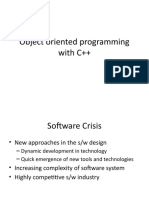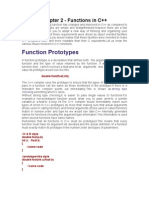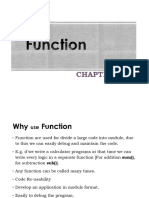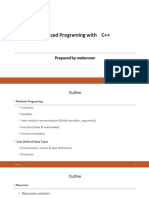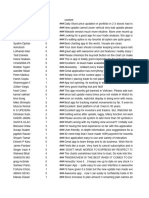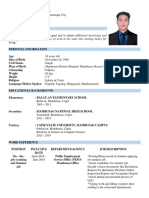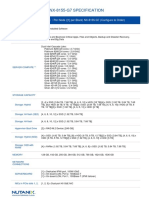0% found this document useful (0 votes)
2 views13 pagesCOM313 - C++ Functions Part2
The document provides an introduction to C++ parameter passing methods, including passing by value, reference, and constant reference, along with examples for each. It also discusses inline functions, function overloading, and includes practical exercises for debugging and testing sample programs. The document emphasizes the importance of practice in programming and suggests tools for running C++ code.
Uploaded by
Agbolade olakunleCopyright
© © All Rights Reserved
We take content rights seriously. If you suspect this is your content, claim it here.
Available Formats
Download as PDF, TXT or read online on Scribd
0% found this document useful (0 votes)
2 views13 pagesCOM313 - C++ Functions Part2
The document provides an introduction to C++ parameter passing methods, including passing by value, reference, and constant reference, along with examples for each. It also discusses inline functions, function overloading, and includes practical exercises for debugging and testing sample programs. The document emphasizes the importance of practice in programming and suggests tools for running C++ code.
Uploaded by
Agbolade olakunleCopyright
© © All Rights Reserved
We take content rights seriously. If you suspect this is your content, claim it here.
Available Formats
Download as PDF, TXT or read online on Scribd
/ 13

















